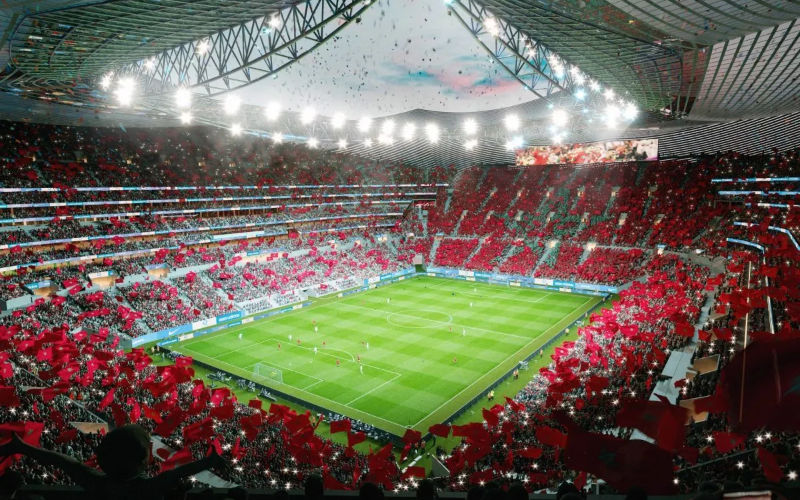Morocco Invests $5 Billion in Preparations for 2030 World Cup Co-Hosting

Morocco is actively preparing to host the 2030 World Cup, alongside Spain and Portugal. The authorities of the kingdom are not sparing any means to make this event a success.
Morocco is accelerating preparations for the 2030 World Cup. An investment of 5 billion will be mobilized to transform the major cities of the kingdom that will host matches of the world football tournament. "The importance for Morocco of hosting the World Cup jointly with Spain and Portugal is enormous. The country has accelerated preparations at all levels: construction, transport, staff training and development of mentalities. The whole country is aware that it is Morocco’s time. We will welcome the whole world and we had better be ready," said Adnane Bennis, editor-in-chief of "Morocco World News", to La Razón.
Among the infrastructures under construction is the Grand Stade Hassan II in Benslimane, near Casablanca. At a cost of 450 million euros, it will ultimately be the largest stadium in the world with its 115,000 seats. In addition to this stadium, five others have been selected to host World Cup matches. These are the stadiums of Tangier, Rabat, Fez, Agadir and Marrakech. All these stadiums are being renovated. The Prince Moulay Abdellah stadium in Rabat will see its capacity reach 65,000 seats. The work should be completed by the spring.
In addition to the stadiums, Morocco is also working hard to modernize its transport infrastructure. The high-speed link connecting Tangier to Marrakech should be completed by 2027. In Casablanca, the economic capital of the kingdom, road infrastructure is seeing significant improvement. To allow the many expected visitors to have a dream stay, the Moroccan authorities have launched the construction in Rabat of what will be the largest hospital in Africa. The airports are not spared either. Expansion projects are underway to increase their reception capacities.
Before the 2030 World Cup, Morocco will host the Africa Cup of Nations this year. A full-scale test. The kingdom is aiming for 30 million visitors in 2030 in order to consolidate its position as the leading tourist destination in Africa. But many Moroccans are questioning the interest in massively investing in infrastructure, in connection with the improvement of their living conditions. Morocco remains faced with major development challenges, including the reduction of deep inequalities between urban and rural areas, Bennis points out, assuring that the kingdom will benefit from the organization of the 2030 World Cup. "Moroccans are great football fans. Having the World Cup on their soil is a dream come true."
Related Articles
-

Morocco Seeks World Cup Qualification in Historic ’Made in Morocco’ Stadium Showdown
5 September 2025
-

Marseille’s Ziyech Gamble: Financial Hurdles and Injury Concerns Cloud Potential Star Signing
5 September 2025
-

World Cup Fever Ignites: Morocco’s Ticket Black Market Soars as Qualification Hangs in Balance
4 September 2025
-

Morocco Considers Alcohol Zones for Foreign Fans in 2030 World Cup Balancing Act
4 September 2025
-

Morocco Eyes World Cup Berth: Atlas Lions Gear Up for Crucial Niger Clash
4 September 2025